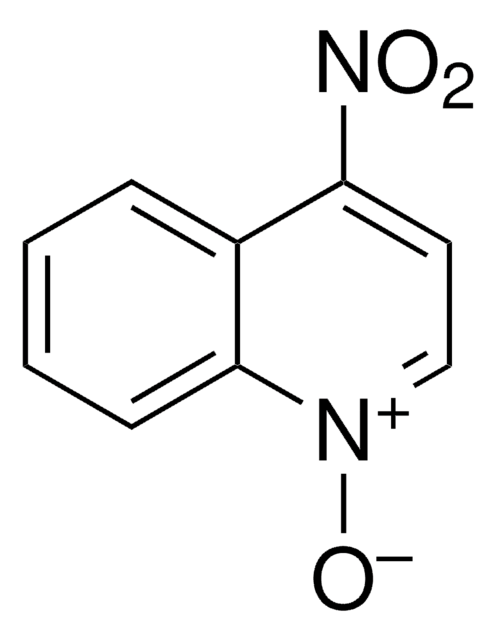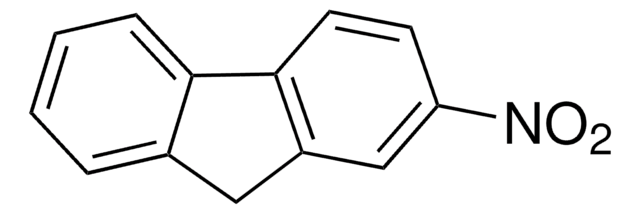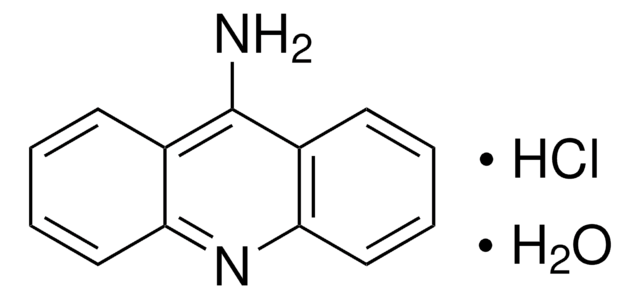I3636
Acridine Mutagen ICR 191
Synonym(s):
6-Chloro-9-[3-(2-chloroethylamino)propylamino]-2-methoxyacridine dihydrochloride
About This Item
Recommended Products
solubility
DMSO: soluble
suitability
suitable for Ames test in Salmonella and E. coli (Frameshift mutagenic standard)
storage temp.
2-8°C
SMILES string
Cl[H].Cl[H].COc1ccc2nc3cc(Cl)ccc3c(NCCCNCCCl)c2c1
InChI
1S/C19H21Cl2N3O.2ClH/c1-25-14-4-6-17-16(12-14)19(23-9-2-8-22-10-7-20)15-5-3-13(21)11-18(15)24-17;;/h3-6,11-12,22H,2,7-10H2,1H3,(H,23,24);2*1H
InChI key
LMEMIKWTNPWYMI-UHFFFAOYSA-N
Looking for similar products? Visit Product Comparison Guide
Related Categories
Signal Word
Danger
Hazard Statements
Precautionary Statements
Hazard Classifications
Acute Tox. 1 Inhalation - Acute Tox. 2 Dermal - Acute Tox. 2 Oral - Carc. 1B
Storage Class Code
6.1A - Combustible acute toxic Cat. 1 and 2 / very toxic hazardous materials
WGK
WGK 3
Flash Point(F)
Not applicable
Flash Point(C)
Not applicable
Personal Protective Equipment
Certificates of Analysis (COA)
Search for Certificates of Analysis (COA) by entering the products Lot/Batch Number. Lot and Batch Numbers can be found on a product’s label following the words ‘Lot’ or ‘Batch’.
Already Own This Product?
Find documentation for the products that you have recently purchased in the Document Library.
Customers Also Viewed
Our team of scientists has experience in all areas of research including Life Science, Material Science, Chemical Synthesis, Chromatography, Analytical and many others.
Contact Technical Service

![Benzo[a]pyrene ≥96% (HPLC)](/deepweb/assets/sigmaaldrich/product/structures/253/820/be96d879-1811-46c0-8f11-612019691c2d/640/be96d879-1811-46c0-8f11-612019691c2d.png)










